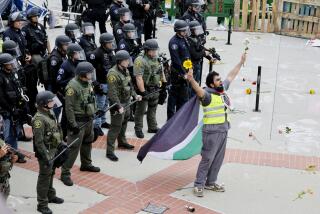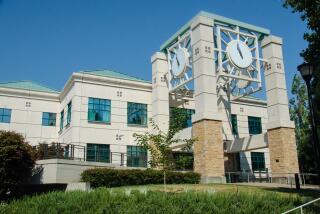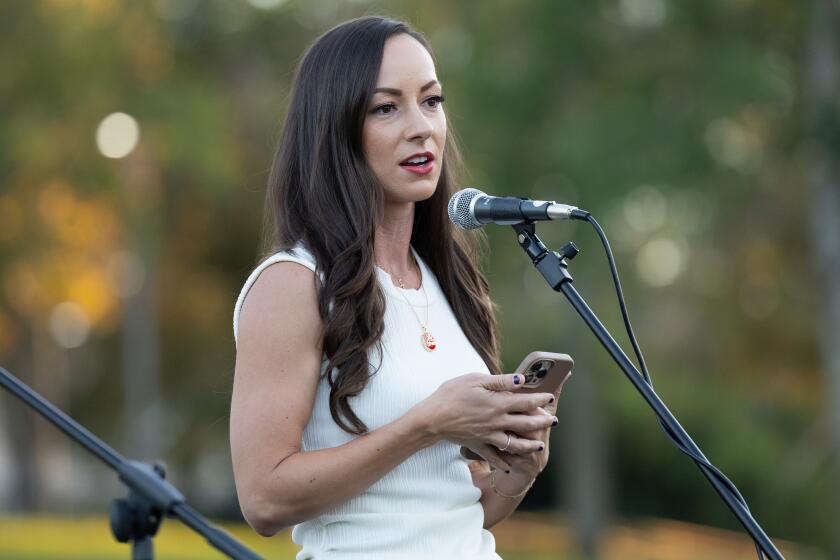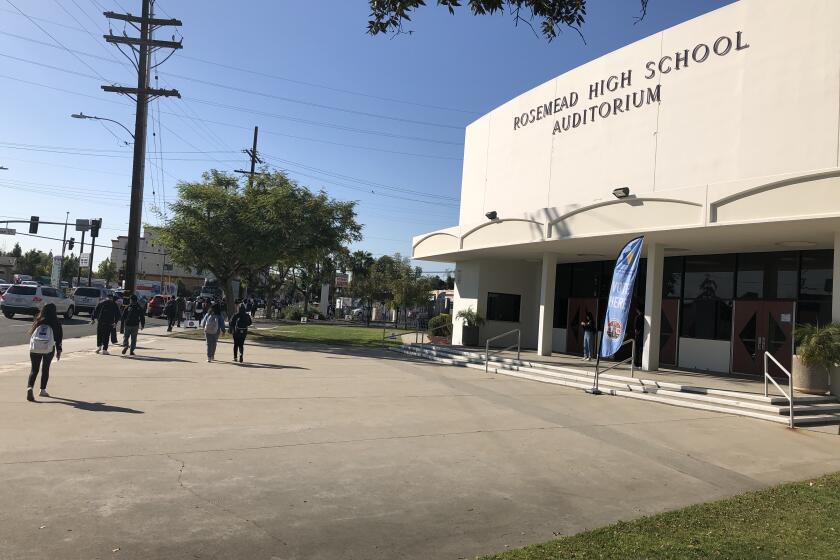Gore Plans UCLA Program Focused on Communities
His vice presidency behind him, his political future a question mark, Al Gore said Thursday that he would head at least briefly into academia, beginning with a program at UCLA intended to address the changing needs of communities.
Gore said that he would begin his work on the Westwood campus Wednesday as part of an interdisciplinary, multiple-campus project on what is being called family-centered community building.
He also plans to teach courses at Fisk University in Nashville, a historically black institution, and at his father’s alma mater, Middle Tennessee State University, near both Nashville and his home in Carthage, Tenn.
And the former vice president has agreed to teach a graduate-level course, “Covering National Affairs in the Information Age,” at Columbia University’s journalism school in New York. It will look at politics from the perspective of politicians and journalists.
The work at UCLA, he said in a telephone interview, will be built around research intended to develop a curriculum on community building. Gore also will take part in a faculty symposium. He plans to visit the campus during the spring semester and next autumn’s semester, meeting on occasion with students.
The program will be attached to the university’s Institute for Children, Families and Communities.
Gore said that the UCLA work perhaps would lead to a degree program “to give students, over four years, the specialized knowledge and skills to build livable communities that are family centered.”
He said it would draw from a wide swath of academic disciplines--among them social sciences, public health, education, architecture and business--for students “who are intent on returning to their home communities to make them a better place to live for all kinds of families.”
For instance, a student trained in community building would look at how jobs, the environment, transportation, care for the elderly, preschool needs and racial and ethnic tolerance, among other elements, fit together to affect a community.
“Just as a medical school takes a holistic approach to the health of the individual, and in the course of that offers programs focused on the different systems and parts of the human body, a curriculum in family-centered community building aspires to give a holistic look . . . to the overall health and well-being of a community--how the systems and parts fit together,” Gore said.
Gore’s research and curriculum-structuring plans grew out of nine Family Reunion Conferences that he and his wife, Tipper, led at Vanderbilt University in Nashville and, particularly, a two-day program two years ago at which it became apparent, he said, that “the idea of a family-centered community was missing as a topic for academia.”
Besides, he said of his multiple-campus plan, “I’ve always wanted to try my hand at teaching. I’m excited to launch a pilot course, bringing these pieces together.”
In addition, he and his wife are planning to work on a book on family issues, drawn from the Vanderbilt meetings.
Tipper Gore said in a statement that the book will “draw upon the struggles and successes of families across the country, including our own.”
More to Read
Start your day right
Sign up for Essential California for news, features and recommendations from the L.A. Times and beyond in your inbox six days a week.
You may occasionally receive promotional content from the Los Angeles Times.






